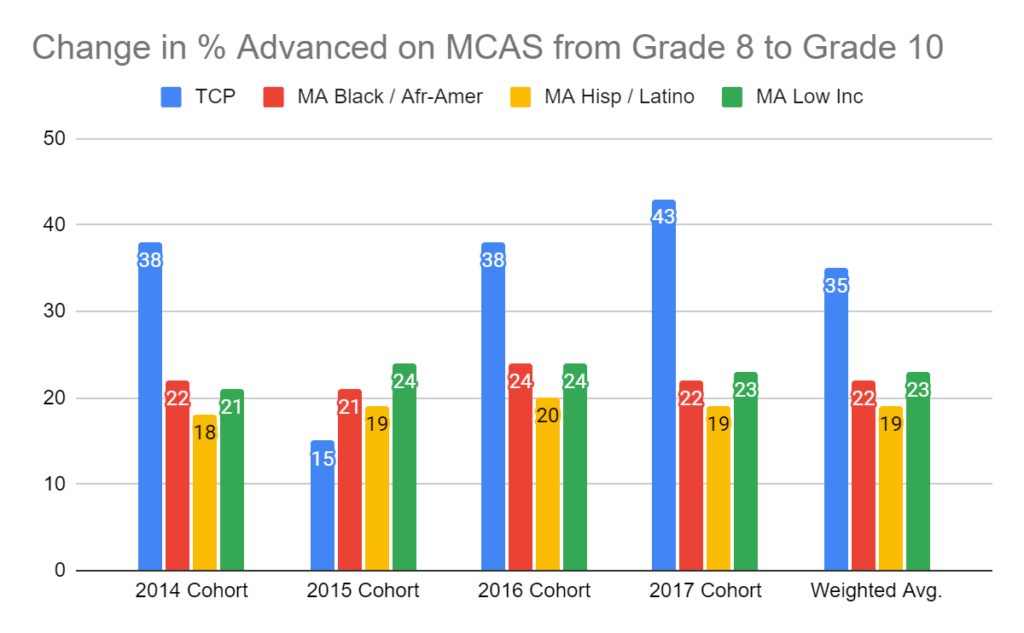Results
In the schools that serve students who live in Boston, a gap remains between the performance of African-American, Latino, and low-income students and their white, Asian and higher-income peers, particularly in math. TCP helps underperforming students succeed in math and boost their chances of completing a college education.
TCP by the Numbers
Over
since 2009
students served
since 2009
Currently working in
districts with 1,000 students served
%
of TCP students enroll in AP level math courses by their senior year
%
of TCP students earned an A or B in the first semester of math after 2022 summer accelerationprogram
Less than
%
of students failed their fall math course in the fall semester
x
3 original districts have more than doubled their number of Black and Hispanic AP math participants
In addition, Orange County Public Schools had the highest percentage of students passing the algebra end-of-course exam after implementing TCP in 2017.
Investing in math support for students opens opportunities.
- Students gain confidence in their math abilities and thrive in strong peer and instructor-led cohorts that lead to academic achievement (including honors and AP-level math courses).
- Students build their identity as mathematicians and curiosity about STEM fields as they participate in our Pride curriculum and build on their sucess as students.
- Parents support of their child’s journey to academic success, participating in a journey of exploration and curiosity.
- Teachers gain satisfaction with their work and have more capacity to prepare students for honors and AP-level math courses.
- School districts can focus on closing opportunity and achievement gaps. They also benefit from partnerships with external stakeholders to support the program and STEM education in general.
- The world gains a better-prepared, inclusive future. We all benefit from access and opportunities for Black, indigenous, people of color, and low-income students.
Our data speaks volumes
